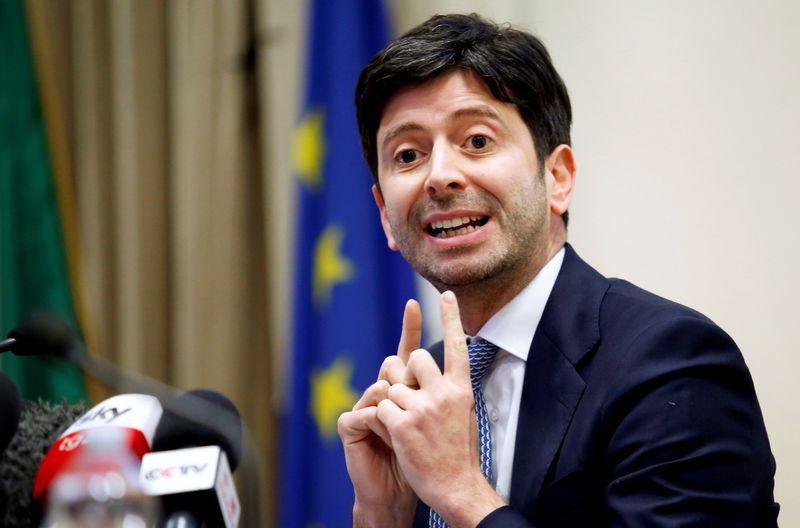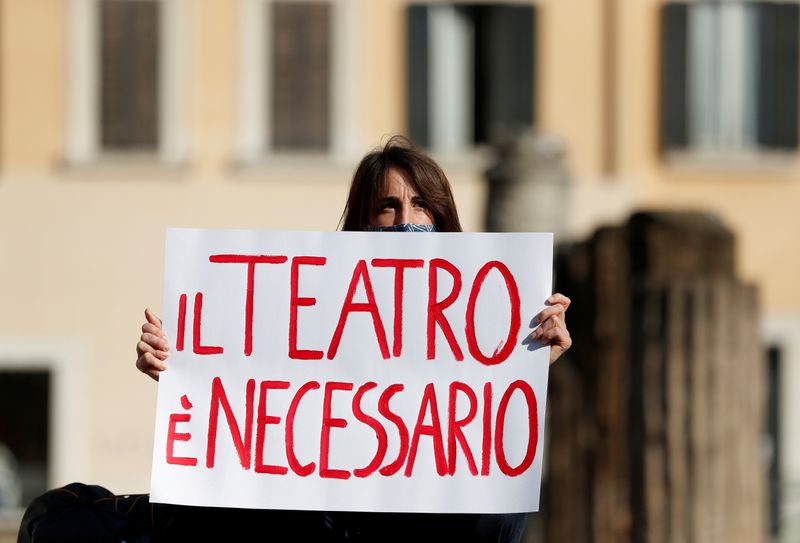ROME (Reuters) – Italy’s government will extend coronavirus restrictions already in place until after Easter, the health minister said on Wednesday, as Rome plans to speed up vaccination efforts to try to beat the pandemic.
Italy, one of the countries hardest hit by COVID-19, has seen its daily cases fall from a high of around 40,000 in November to under 15,000 at present, but officials fear loosening restrictions may lead to a surge in infections driven by new, highly contagious variants.
“The epidemiological conditions do not allow us to relax the curbs,” Health Minister Roberto Speranza told parliament, adding that strains first discovered in Britain, South Africa and Brazil are increasingly being detected in Italy.
The government introduced a raft of restrictions before Christmas, some of which are due to expire next week.
Speranza said a new decree would be issued shortly and would be valid until April 6, at the end of the Easter holidays. He did not provide further details, but cinemas, theatres and gyms look certain to remain shuttered, while opening hours for bars and restaurants will almost certainly stay highly limited.
Looking to keep new cases in check, Prime Minister Mario Draghi’s new cabinet earlier this week extended a ban on non-essential travel between the country’s 20 regions.
Speranza said the government was also looking to speed up vaccination efforts.
Italy launched its vaccine campaign at the end of December, and has so far administered 3.7 million jabs including second shots. In all, it has received 5.2 million shots from vaccine manufacturers, but supply delays, which have also affected other European Union states, has hampered efforts.
The northern Lombardy region said it would change its tactics for Bergamo and Brescia – two of the worst affected areas in Europe which have seen a pick up in infections this month – to free up more shots for locals.
“We will lower the doses available for the second shots… We have to move fast,” said Guido Bertolaso, the coordinator of the regional vaccination campaign.
Some Italian officials say the whole country should do likewise, following the example of Britain, which has focused on vaccinating as many people as possible and not putting aside doses for recommended follow-up jabs.
(Reporting by Angelo Amante; Editing by Crispian Balmer)

























